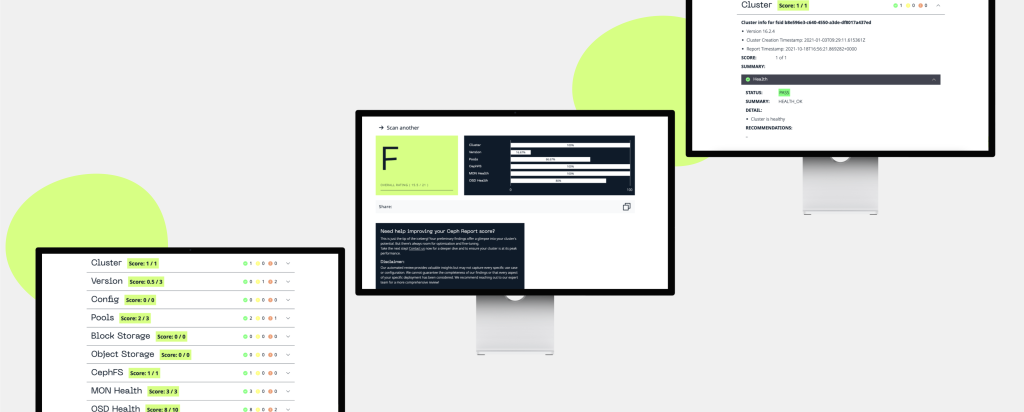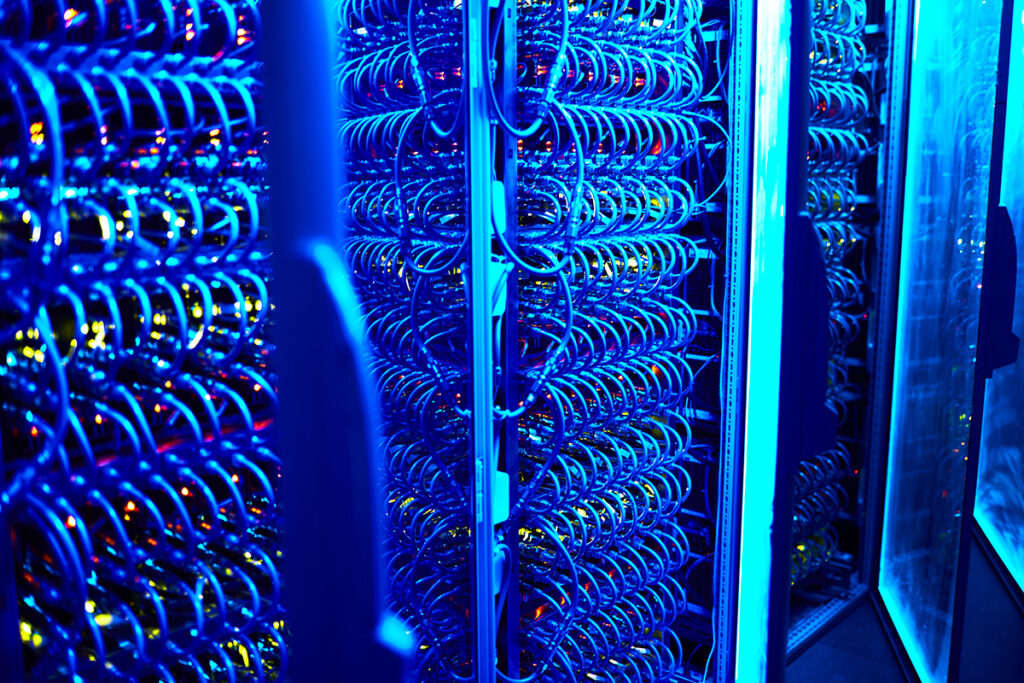Managing a Ceph cluster isn’t just about keeping the lights on. Whether you’re running a production deployment or fine-tuning performance, small inefficiencies add up. Configuration missteps, outdated software, or overlooked best practices can quietly degrade performance, introduce unnecessary risks, and make troubleshooting harder when something goes wrong.
The Clyso Ceph Analyzer helps cut through that complexity. It provides a free, automated analysis that identifies potential issues and optimization opportunities in your cluster. Instead of spending hours manually reviewing settings or second-guessing whether an upgrade is necessary, you get immediate, actionable insights.
Common Ceph Pain Points That Slow You Down
Even well-maintained clusters can develop inefficiencies over time. Some of the most common challenges include:
1. Outdated Software and Known Bugs
Running an older Ceph version isn’t just about missing out on new features—it can introduce stability risks. Some releases contain known severe bugs, performance limitations, or security vulnerabilities that impact cluster reliability.
2. Performance Bottlenecks Hidden in Your Configurations
Ceph offers extensive tuning options, but default settings aren’t always optimized for real workloads. Issues like misconfigured OSD weights, unbalanced CRUSH maps, or missing pool flags can create avoidable slowdowns.
3. Storage Risks and Data Integrity Gaps
Without the right protections in place, production pools can be accidentally deleted or altered, leading to serious data risks. Important flags like nodelete and nosizechange are often missing, leaving clusters exposed to unintended changes.
4. Monitoring and Cluster Stability Issues
A cluster may seem fine on the surface, but hidden stability issues—such as improper monitor quorum configurations or suboptimal monmap settings—can lead to preventable outages.
How the Clyso Ceph Analyzer Works
The analyzer is designed to be fast and easy to use:
- Run a Simple Command – Generate a Ceph report.
- Upload Your Report – Submit the file through Clyso’s online interface.
- Receive Actionable Insights – A detailed breakdown identifies strengths, weaknesses, and areas for improvement.
Within moments, you’ll get:
- Overall cluster health score
- Critical issues flagged for immediate attention
- Upgrade recommendations based on known bugs and version mismatches
- Performance optimizations to enhance efficiency
- Best-practice configuration changes for long-term stability
Beyond the Analyzer: What Comes Next?
The Ceph Analyzer highlights what’s working and what’s not, but in some cases, fixing deeper issues requires expertise.
Misconfigurations, performance bottlenecks, and outdated software can be difficult to correct without affecting production workloads. For teams that need extra support, a more hands-on approach to cluster management can help ensure long-term stability, efficiency, and scalability.
A Smarter Way to Manage Ceph
The Clyso Ceph Analyzer helps you:
✔ Identify potential risks before they cause downtime
✔ Optimize configurations without trial and error
✔ Keep your cluster updated and protected from known issues
✔ Gain expert-backed recommendations tailored to your deployment
A more efficient Ceph cluster means better performance, fewer headaches, and more time spent on innovation instead of troubleshooting. If you’re looking to improve stability and efficiency, the first step is understanding where your cluster stands today. The Ceph Analyzer makes that easy.
Run your free analysis and see what’s possible.




